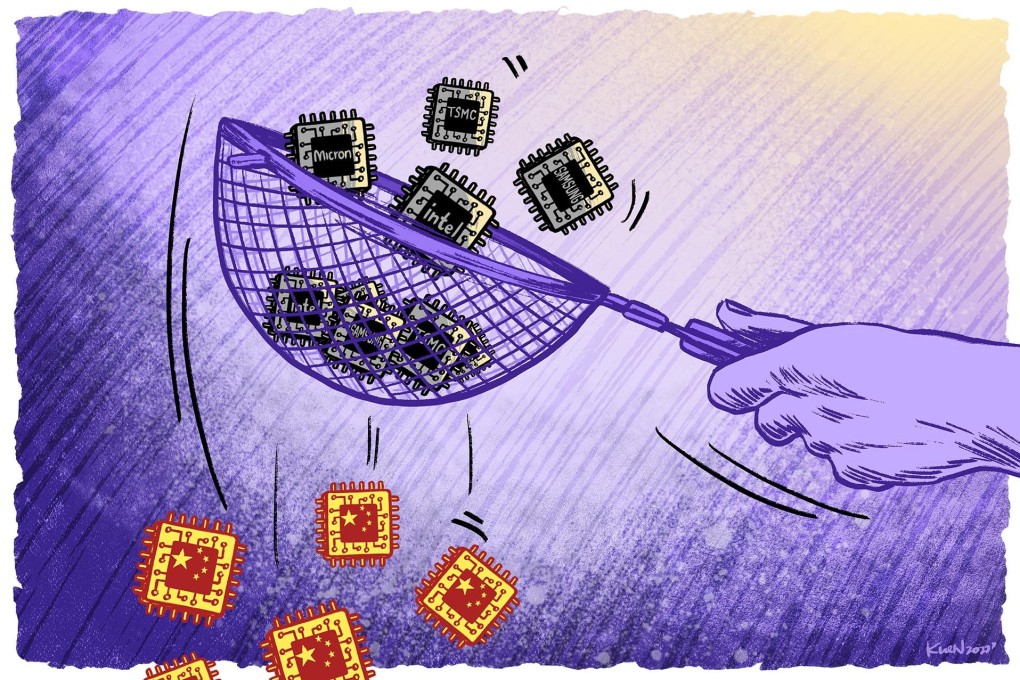US and China both face tough struggles as war for chip supremacy intensifies following American export restrictions
- Washington imposes sweeping new rules targeting China but faces major challenges in bid to regain its global primacy in semiconductor manufacturing
- Asian rivals far outpace the US in making the advanced chips crucial for fighter jets, drones and cutting-edge military hardware

Restrictions announced last week on Chinese access to US semiconductor technology raise the stakes significantly in the US-China tech war, but Washington’s bid to regain chip manufacturing primacy and slow China’s military and economic rise faces huge challenges, industry analysts said.
The odds are long at best that the US chip industry can again dominate a field it pioneered, catch market leader Taiwan Semiconductor Manufacturing Company (TSMC) – which makes some 90 per cent of the world’s most advanced chips – or match Samsung Semiconductor Global any time soon.
“The short answer is no,” said Paul Triolo, senior vice-president with Albright Stonebridge Group and a former electrical engineer in Silicon Valley. “This is really complicated industry. It’s expensive and you’d better put your money where your mouth is.”
The United States is trying. In July, Congress passed the US$52.7 billion Chips and Science Act, which provides US$13.7 billion for R&D and US$39 billion for manufacturing subsides, although these amounts pale against those of foreign government’s or the capital spending of leading private competitors.
The breadth and scope of the latest moves intensify the US-China tech war and worsen the decline in bilateral relations. “Brace yourself,” said Xiaomeng Lu, geopolitical director at the Eurasia Group. “This is the next wave.”
